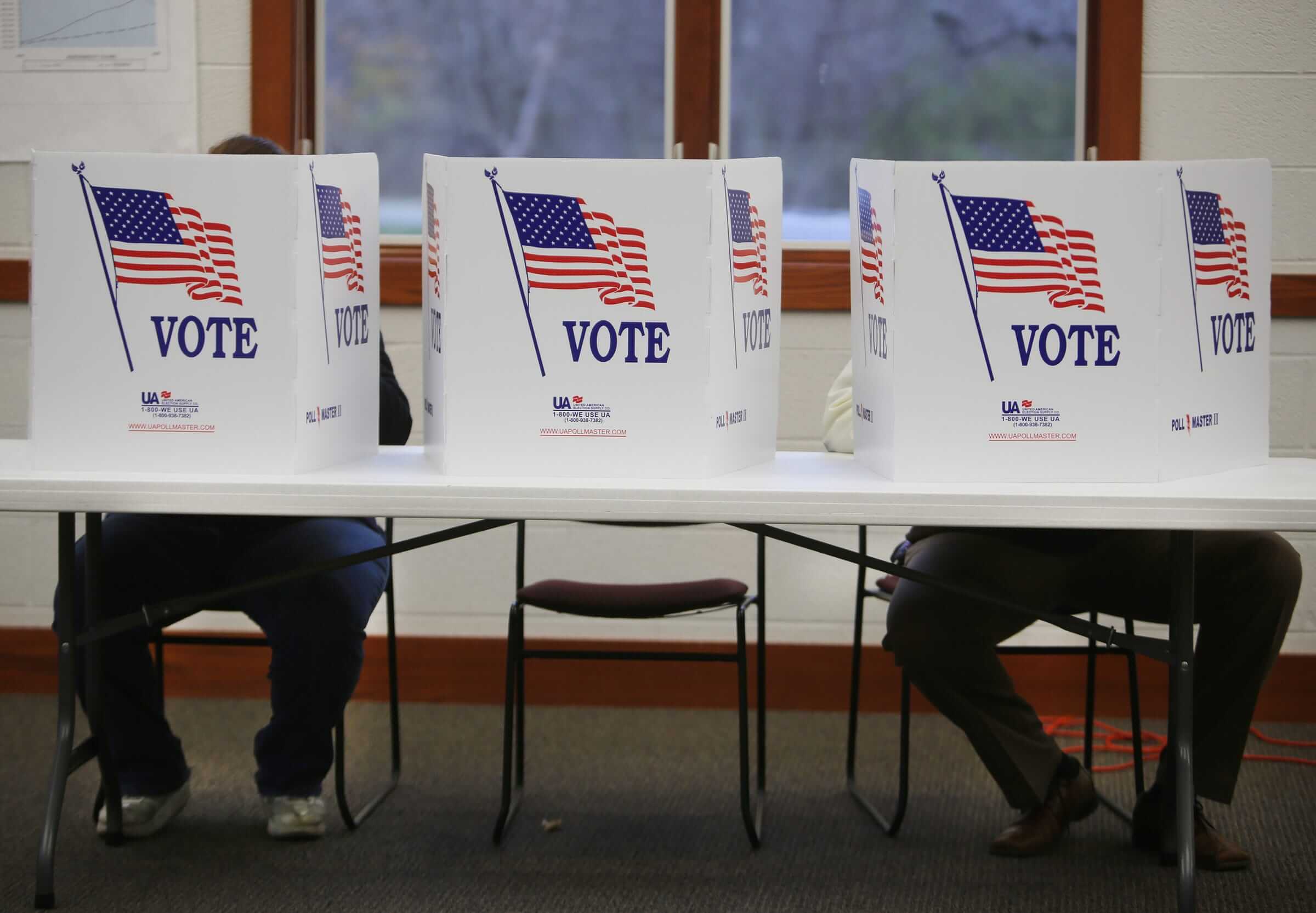Michigan voters have new options to more safely cast their ballot amid the coronavirus pandemic — including no-reason absentee voting for all — thanks to a 2018 state constitutional amendment:
- Any registered voter can get a mail-in absentee ballot and safely cast a vote from home.
- You can now register to vote as late as Election Day.
- In addition, special precautions are planned at polling places to safeguard voters and poll workers from COVID-19.
- In September, a judge ruled that election officials must accept ballots postmarked by Nov. 2, as long as they arrive within 14 days of Election Day.
Here’s what else you need to know:
How do I register to vote?
You can register online, by mail or in person. Register online through Michigan’s voter information center before Oct. 19. The center also has a downloadable application you can mail in or hand deliver to your city or township clerk’s office. If you personally deliver your application, you’ll be asked for a photo ID, like a driver’s license or personal ID card. If you don’t have an acceptable form of photo identification, you’ll be asked to sign an affidavit.
From Oct. 20 to Nov. 3, you must register in person at your city or township clerk’s office and provide proof of residency. Acceptable documentation includes a Michigan driver’s license or state ID card, bank statement, current utility bill, paycheck or government check. After registering, you can fill out an absentee ballot on the spot, at the clerk’s office, or you can vote at your polling place on Election Day.
If you’re already registered, use the state’s online information center to update your information, see a sample ballot and find your polling place.
How can I get an absentee ballot? Are there important deadlines?
Now that Michigan is a “no-reason” absentee voting state, all registered voters should have received a mail-in ballot application in May. It can also be downloaded or picked up from your local clerk’s office. The absentee ballot application can be returned to your clerk’s office by email, mail, fax or in person.
Absentee ballot requests that are mailed in must arrive at your clerk’s office no later than 5 p.m. on Oct. 30. If you’re already registered at your current address, you can request an absentee ballot in person at your clerk’s office until 4 p.m. on Nov. 2, the day before Election Day.
How do I know my absentee ballot is secure?
Mail-in voting is extremely secure, and there is little evidence of fraud. Officials engage in a signature-matching process when you submit your application for a ballot and again when you submit your absentee ballot. The signature must match the signature on file.
You can track your ballot using the state’s voter information portal.
When is Election Day? When are polls open?
Tuesday, Nov. 3. Polls will be open from 7 a.m. to 8 p.m.
Can I vote in person before Election Day?
Michigan does not have early in-person voting, but voters can cast absentee ballots beginning 45 days before Election Day. The ballots are tabulated on Election Day.
What form of identification do I need to vote?
A photo ID is required, such a Michigan driver’s license or Michigan-issued ID card, federal or state government-issued photo ID, U.S. passport, military ID with photo, student ID with photo, or tribal ID card with photo.
If you don’t have an acceptable photo ID, you can sign an affidavit to vote. Your ballot is included with all others and is counted on Election Day. More information on acceptable IDs for Election Day voting is on the secretary of state’s website.
What is being done to make polling places safe from the coronavirus?
The Michigan Secretary of State’s office is providing resources to help local jurisdictions ensure they can safely process the increase in mail-in ballots and provide safe in-person voting:
- $2.2 million for jurisdictions to buy personal protective equipment (PPE), including masks, gloves, hand sanitizer and cleaning supplies to protect election workers and voters.
- $2 million for drop boxes, automatic letter openers, envelope folders and other supplies to help local officials safely process the expected increase in absentee ballots. Clerks can also use the funds for materials to help polling locations practice social distancing, like sneeze guards, signs and tape.
- $1.5 for additional ballot tabulators, high-speed scanners and high-speed tabulation software to more quickly tally the expected increase in absentee ballots.
The secretary of state’s office is also recruiting election workers to help local clerks on and before Election Day.
Will I be able to vote in the same place as I always have?
You should be. The state has not announced changes to polling places. Use the state’s online information center to find your polling place.
What are the key races in my state?
- U.S. President
- U.S. Senate: Incumbent Gary Peters (D) v. John E. James (R)
- U.S. House: All 14 seats
- State House of Representatives: All 110 districts
- State Supreme Court: 2 seats
This story was updated on Sept. 16 with more information about voting with absentee ballots. Voting rules and procedures may change before Election Day. We’ll update this story if they do, so bookmark this and check back.
AARP is urging older Americans to ask the candidates 5 key questions:
- Just over half of all older Social Security beneficiaries rely on the program for at least 50 percent of their income. If elected, how will you ensure that current and future Social Security benefits are not cut as part of deficit reduction?
- Half of the people with traditional Medicare spend at least a sixth of their income on health care. If elected, how will you protect Medicare from benefit cuts, as well as lower health care costs and ensure seniors continue receiving the affordable health care they have earned?
- Unemployment during the coronavirus crisis reached the highest levels since the Great Depression, and older Americans have been affected disproportionately. If elected, how will you help Americans over the age of 50 recover economically from the effects of the coronavirus?
- Americans pay the highest prescription drug prices in the world. If elected, how will you cut prescription drug prices for all Americans?
- COVID-19 has caused death and suffering for too many older Americans who require long-term care. If elected, how will you make sure seniors can access safe and affordable long-term care at home, as well as in facilities like nursing homes and assisted living?
Also of Interest
- Stay updated on the 2020 election at AARP.org/election2020.
- For the latest coronavirus news and advice go to AARP.org/coronavirus.







